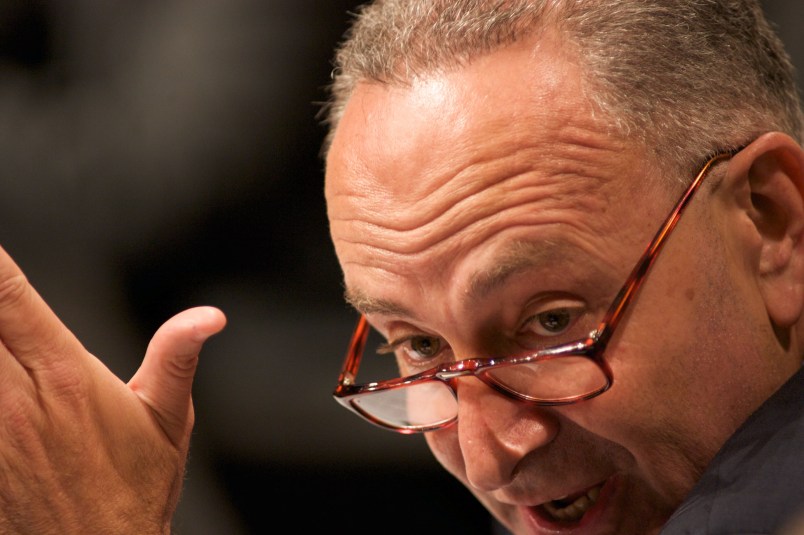In a phone interview Thursday evening, Sen. Chuck Schumer (D-NY) preemptively struck back against the idea, pushed by some Republicans, that Democrats got rolled in the spending cut fight.
“The total number of cuts has never been as important as where the cuts come from,” Schumer told TPM. “We’ve made good headway in getting some of their most reckless cuts off the table.”
The pushback comes as Democrats and Republicans work toward a six-month agreement to fund the government that will cut over $30 billion in current spending. That’s significantly less than the $61 billion the Republican House passed. But it’s also just about the same number the House GOP leadership originally endorsed.
In February, House Appropriations Committee Chairman Hal Rogers (R-KY) boasted: “Never before has Congress undertaken a task of this magnitude. The cuts in this [bill] will represent the largest reduction in discretionary spending in the history of our nation.”
Then the Tea Party revolted. The first proposal was unacceptably tepid for conservatives in the GOP, who sent leadership back to the drawing board. Now, though, it looks like the final number will land in the original ballpark.
That will give Republicans a chance to elide the history and claim they got everything they originally wanted. But while Democrats have compromised a great deal to arrive at this framework agreement, Schumer says it’s wrong to suggest Republicans out-negotiated them, or tricked them into agreeing to the GOP’s opening bid.
“Many have thought for a while this is where a compromise would be had, but our job has been making sure we aren’t cutting the wrong things.”
Both of the GOP’s proposals have been limited to non-defense discretionary spending, and targeted key liberal priorities like Pell grants. The Dems seem to have successfully pushed to broaden the budgetary scope of the negotiations to include mandatory spending — entitlement programs like Medicare, and perhaps subsidies written into the tax code, which takes pressure off the government services in the discretionary budget. They also plan to reroute the cuts to be less offensive to the Democratic base. And, Schumer insists, the final bill will not include controversial spending limitations or handcuff the executive branch.
“None of the most controversial riders,” will be included in the deal, Schumer said.










